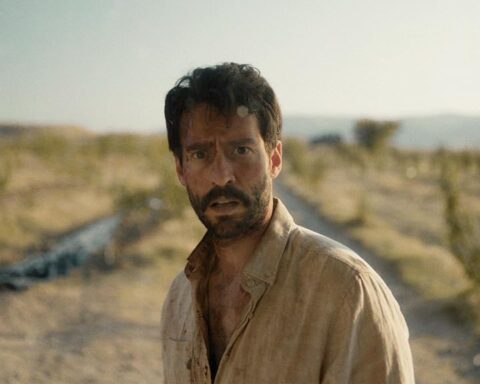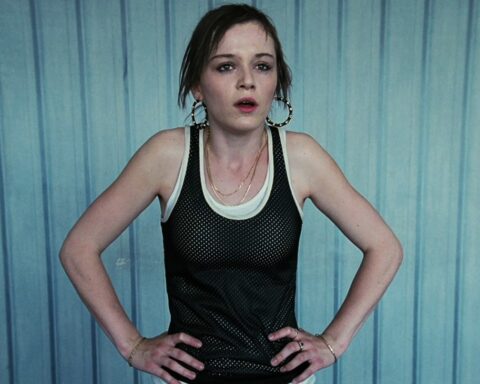Das Lehrerzimmer (2023)
Ilker Çatak reflects a society’s mirror through a microsystem with his 4th feature film ‘Das Lehrerzimmer,’ which premiered at the Berlinale.
The Teacher’s Room is a highly successful film with an increasingly intense psychological thriller dose and a factor of suspicion/mystery. So much so that the presence of numerous unanswered questions in the finale adds a separate beauty to the film. Particularly noteworthy is the final scene, where the whole setting appears empty and almost surreal, with two police officers removing the ‘Oscar’ from the school as if he were a king. Is Oscar a criminal? Or a hero? And who was the thief? Now, it’s not about that, but if you like, you can give your own answers, says director Ilker Çatak.
The first striking aspect of the film is the flawlessly portrayed German order. The fact that the director is of Turkish descent makes this a bit surprising; undoubtedly, there is the influence of Johannes Duncker, with whom he worked closely, in interpreting German codes so objectively and successfully.
As for the subject of the film; we witness Carla, a contract teacher working at a school in Germany, who stands out among other teachers with her idealism, taking on human relationships like mathematics and failing miserably, thinking she did everything according to her principles but antagonizing almost everyone around her and losing control. When things go awry, should she follow her principles or the rules of the system she belongs to?
Carla, who always sides with the children against the hypocritical school bureaucracy, manages her class like a maestro. Especially when she enters the classroom, the classical music playing in the background and the silence that falls when facing the children were pleasant scenes. In summary, it can be said that there is an introductory approach in the film aiming to bring the audience closer to Carla. Another sympathetic character is her smart but introverted student, Oscar.
Carla, disagreeing with the investigation of theft cases solely involving children, involves teachers and administrative staff. However, she cannot practically apply the principle she teaches to children in math lessons, that if a proposition is proven step by step with explainable evidence, its correctness can be demonstrated, due to reasons developing mostly outside her control, and things spiral out of control. So much so that she ends up antagonizing the children, the very side she is supposed to defend. Here, the character who goes to extremes is the audience favorite, Oscar. I think the characters’ oscillations between good and bad are one of the most successful elements of the film. Instead of purely good and purely bad characters, these fluctuations always manage to keep the tension high.
The focus is not only on the concept of justice; it also addresses racism, prejudices, the dance on the boundaries of law and lawlessness, and the seemingly solid system of zero-tolerance school policy’s fragility and flaws. The revelation of fake news and the reshaping of reality through social media manipulations are also included… Another sociological element that is not dominant but can still be noticed with a subtle touch is the approach of the Turkish father who says, “My son is not a thief. If he were, I would break his bones.”
The technical choices of the film are also hard to miss; starting with a focus on Carla, the camera keeps her and her students close, even close enough for a close-up when needed. When things get out of control, the actors are uneasy, and the camera is shaky. As a leitmotif, the strings that increase the tension fulfill their duty successfully, but after a while, the prominence of the music can be disturbing; perhaps this is the director’s intention.
Finally, the title of the film, rather than being chosen because of the location where the main event takes place, was selected as the teacher’s room to represent Carla’s contradiction, I think. It is also a nice reflection of Carla’s entrapment, whose private life we never glimpse into within the school grounds, and the contradiction of those who are part of the system with her but do not feel belonging to that system because of her principles.
Watched it at: Filmekimi / Film Festival Gent
By: Zeynep Bakanoğlu, Nil Birinci
Editor: Nil Birinci







